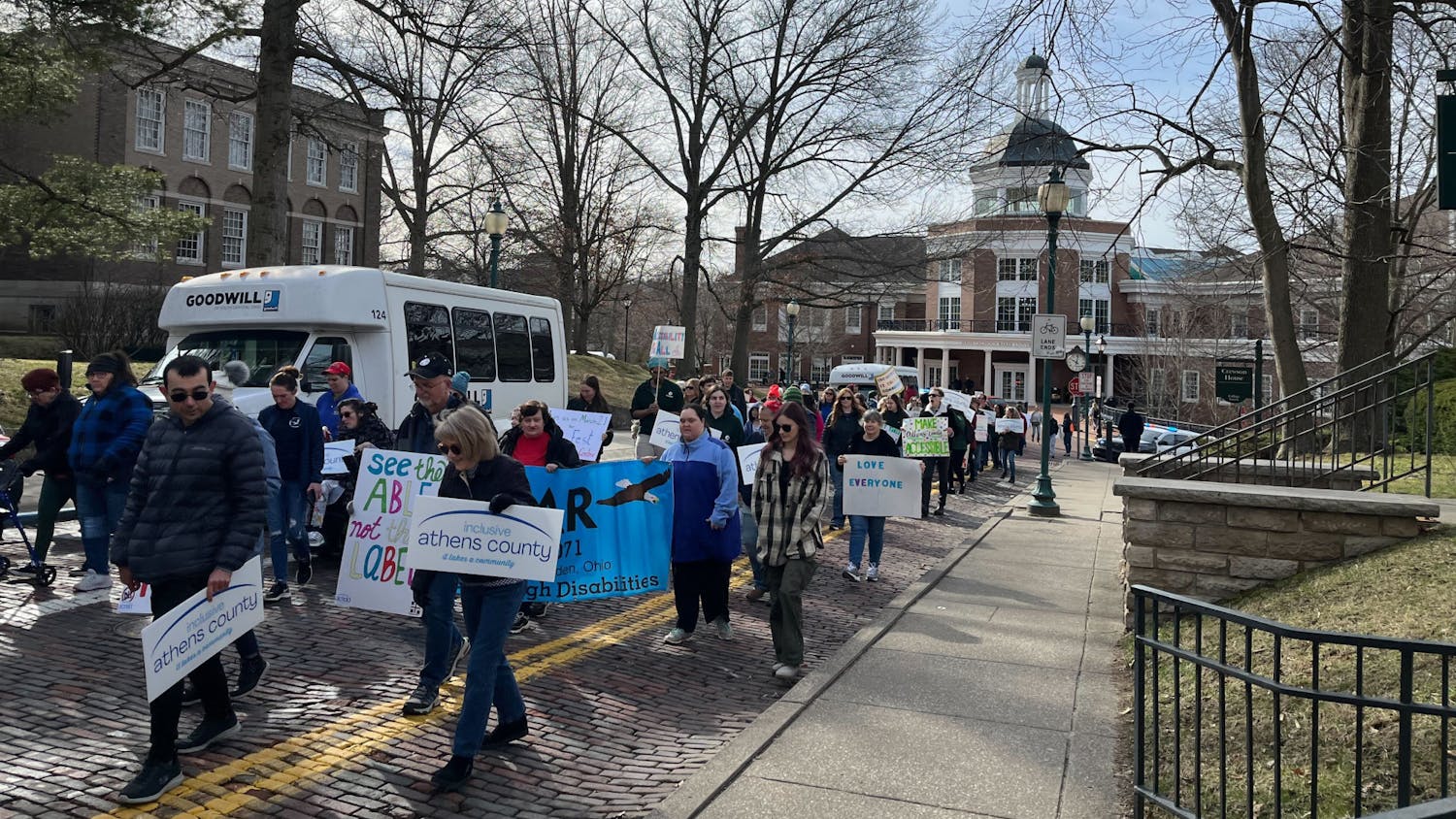Lake Logan State Park, located in Hocking County, has been negatively affected by urban developments, agricultural activities, pollution and climate change. Volunteers and other Athens residents are working together to improve the lake's quality.
In October 2023, the Lake Logan Association was formed to help preserve, restore and protect the lake. The group's goals include involving citizens in the Southeast Ohio area to advocate for environmental policies and secure funding for the lake.
Maria Diaz-Myers, a volunteer in the association, said the association’s purpose is to advocate for a healthier and cleaner lake.
About a week after the association was formed, the group created a petition to improve the lake's conditions. The petition pinpoints three crucial actions: removing years of sediment build-up from all areas of the lake, creating a comprehensive lake management plan and repairing the dam's main outlet valve so it can be lowered in the winter.
Carol Mackuy, a volunteer in the association, said the sediment build-up is a problem for the lake because it has made it much shallower and increased vegetation growth and takeover, affecting navigability, boating ability and fishing aspects.
Mackuy said the dam wasn't fixed until Jan. 30; before then, it had been in disrepair and not functional for three years. The project kept getting delayed due to issues like the weather.
However, to achieve its goals and fix the lake’s issues, the association needs the support of the local and state governments to provide sufficient funding.
The petition is currently 714 signatures away from achieving its goal of 5,000 signatures. Anyone interested in signing the document can go to the association's website to sign virtually.
"It just has not had the kind of maintenance and management that it has needed to keep it in its original state and for its original purposes," Mackuy said.
Mackuy said she heard comments that restoring the lake and its purposes was too late. Hearing those comments inspired her to take action and get involved with ways to improve the lake.
"I didn't want to believe that (it’s too late), and I still don't want to believe that, and I think what we have learned so quickly is the community does care … It's just that there was no group that stepped forward to represent the citizens," she said.
Myers said the organization is associated with the Ohio Department of Natural Resources, or ODNR, Liason Committee and has had previous meetings with the committee to voice its concerns.
Along with Mackuy's involvement in the Lake Logan Association, she also serves on the ODNR committee.
"It was our goal to reach out on behalf of the organization's concerns … try to open up a line of communication with the state from the top down," she said. "So we could really understand what their intentions were, what they wanted to do, what their plans were and are."
Myers has also expressed how important it is to spread the word among younger generations.
Hailey Barnhill, a first-year student on the pre-med track, said it's important for younger people to realize the restoration of Lake Logan applies to them now and will still apply to them in the future.
"Right now, (the lake) might (matter to) the people who are trying to save it – it might be their lake right now, but in the future, it's going to end up being our lake because this younger generation is the future and the lake will get passed down to them," she said.
Isabella Clark, a second-year student studying environmental science and sustainability, said vegetation has taken over a significant area of the lake, and there are no trees or plants surrounding the area, which makes it difficult for wildlife to thrive.
"The amount of grass and vegetation are not good for the fish and wildlife," Clark said. "We need to remove some but not all of the grass and vegetation and remind ourselves that the lake is home to the fish. Grass is a good thing for animals and other species that live at that lake but not in overabundance."
Clark also addressed how water pollution caused by urban developments and other agricultural activities that use fertilizer with chemicals affects Lake Logan.
"When the rain comes down, the rain causes flooding, which causes all the chemicals from the fertilizer to spread to nearby bodies of water, which then contaminates the lake," Clark said.
"This leads to poor water quality, and the chemicals are making the water toxic, which is causing algae to develop among the lake, which depletes the oxygen levels and threatens the lives of the fish."
Clark said climate change has also impacted the lake's fish and aquatic life. When water temperatures rise, the lake's balance is disrupted, affecting aquatic life.
"All these issues with climate change further give us a reason and motivation to help improve the lake's long-term health and sustainability and improve the quality of life for the wildlife and aquatic life," Clark said.
Anyone interested in getting involved with the Lake Logan Association can complete the survey and register as a volunteer.






